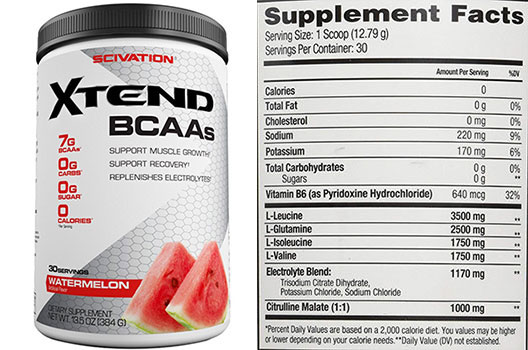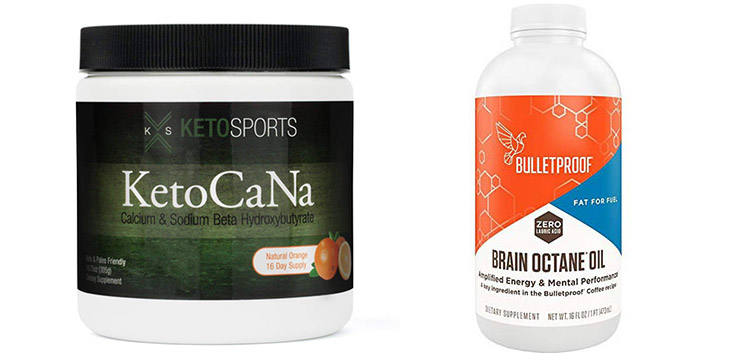As part of the “Dom D’Agostino” chapter in Tools of Titans, Tim Ferriss discusses his foray into fasting.

Tim came into fasting as a method to tackle his long-standing Lyme disease. He began with a 7-day water fast at a fasting clinic – and whilst he didn’t like their style and rules; he found his long-standing skin issues cleared up, as well as chronic joint pain.
Over time Tim optimised his fasting methodology. The longest fast he has done was a 10-day fast, during which he managed to maintain all his muscles, compared with his first fast where he lost 12 pounds.
He had two “tricks” to prevent muscle loss whilst fasting:
- Consume trace amounts of BCAAs and 300 to 500 calories of pure fat each day. These provide the body with small amounts of protein that can help with muscle sparing. Specifically, Tim consumed roughly 1.5 g of BCAAs upon waking and roughly 3g of BCAAs during a workout.
BCAAs are “branch chain amino acids”, namely leucine, isoleucine, proline, and valine. In Tools of Titans Tim doesn’t name the BCAA brand he uses, but on his blog Tim mentions that Dom D’agostino uses Scivation Xtend BCAAs, which is a flavored powder version. Peter Attia, who you may know, has noted that he’s only aware of two legitimate BCAA sources on the market; Ajimoto & Biosteel. Ajimoto sells their BCAA formula to other companies under the name “Ajipure”, which Scivation Xtend BCAAs are using. - Get into ketosis as quickly as possible, because ketosis itself is a muscle-preserving state. Below we go into detail about how to get into ketosis ASAP.

Tim explains that the more you get into fasting, the faster the transition to ketosis is. Due to a biological muscle memory related to monocarboxylate transporters and other things “above his pay grade”.
Currently, Tim aims to do a 3-day fast once per month and a 5 to 7 day fast once per quarter.
3-Day Fast Summary:
- Have your last meal by 6 pm Thursday night
- Friday morning, take a long walk (ideally 3-4 hours) to accelerate your transition into ketosis
- Friday, Saturday & Sunday consume moderate amounts of exogenous ketones to “fill the gap” of food, while you’re moving into ketosis
- Sunday evening break the fast
3-Day Fast in Detail:
Thursday Evening
- Eat a low-carb dinner around 6pm, once that meal is finish, the fast begins.
Friday Morning
- Upon waking, consume exogenous ketones and (optionally) caffeine. Then WALK. Your goal is to walk for 3-4 hours so that you use up your liver and muscle glycogen stores. This hastens the switch from burning glucose to burning ketones for energy.
- Tim suggests you bring water with you and add a little salt to it. You want to stay well hydrated throughout the walk, and the salt is to prevent the misery of headaches/cramping.
- To keep you busy during the walk (and avoid boredom), Tim recommends scheduling phone calls during the few days prior. Alternatively, podcasts are a good time fill.
Saturday Morning
- After your long walk on Friday, you should expect to be in ketosis. Using a ketone meter like the Precision Xtra, test your blood ketones to verify. You’re aiming to be at 0.7mmol or greater by this point. Urine testing strips are inaccurate, and should not be used for this. You may think that testing your blood ketones is unnecessary, but don’t underestimate the value of having a measurable parameter, that shows you are heading in the right direction.
- Exogenous ketones…
Throughout the fast you will be using exogenous ketones as a tool to plug a gap during the fast that carbohydrates would usually fill. Once you get into deep ketosis the fats can be omitted, because your body will be effectively using its own stores. - What is “deep ketosis” you might ask? One way to measure it is when your blood glucose and blood ketones are at a 1:1 ratio, or greater. Greater means your blood ketones are higher than your blood glucose. When comparing these, ensure both measurements are in mg/dL – such that you’re comparing apples with apples. As Karl (reader) pointed out in the comments, you shouldn’t compare them using the unit mmol/L.
- Specifically you’ll be taking exogenous ketones upon waking and 2 more times throughout the day at 3-4 hour intervals. Tim primarily uses KetoCaNa and Brain Octane. KetoCaNA provides exogenous ketones directly, whereas Brain Octane is made of C8 caprylic acid, which can then be used by the body to increase endogenous ketone levels. Note that whilst Brain Octane is “MCT oil”, it’s specifically the C8 chain of MCTs which is found to be most effective at raising ketone levels. If you opt for another brand of MCT oil, check the % of C8 oil that it’s using to make sure it’s significant.

Friday, Saturday & Sunday
- Friday, Saturday & Sunday sleep as late as possible. Letting the sleep do some of the work for you
- You only need to do the long walk on your first day of fasting (Friday), with the goal being to kick you into ketosis faster. Saturday and Sunday you will be proceeding with your regular affairs – assisted by some exogenous ketones as necessary.
- Each day of fasting, feel free to consume exogenous ketones or fat (e.g., coconut oil in tea or coffee) as you like, up to 4 tablespoons. Tim often rewards himself at the end of each fasting afternoon with an iced coffee with a bit of coconut cream in it. Sometimes he even allows himself a SeaSnax packet of nori sheets as a treat.
Sunday Night
- Break your fast Sunday night and enjoy it. For longer fasts, you need to think carefully about how you refeed, but for a 3 day fast, you don’t need to be so careful.
Staying in Ketosis Post Fast
After Tim’s 3-day fast you will be deep into ketosis. For most people, this will be enough fasting, and you’ll want to start eating again. One possibility is to stay in ketosis for a while, before transitioning back to “normal” meals. This could certainly help if weight loss is your goal.
How to stay in ketosis:
- Your goal will be to eat lots of fat (~1.5 to 2.5g per kg of body weight), little to no carbs and moderate protein (1 to 1.5g per kg of body weight) each day.
- High protein and low fat are no good – the excess protein gets converted by the liver into glucose, which kicks you out of ketosis. You need to be consuming 70 to 85% of calories in the form of fat.
- For example, a chicken breast could kick you out of ketosis, but a chicken breast cut up into a leafy green salad with a lot of olive oil, feta cheese and some bulletproof coffee (for example) can keep you in ketosis.
Closing Words
Hopefully the above has helped you on your fasting journey. Happy to try and answer any questions below in the comments.

